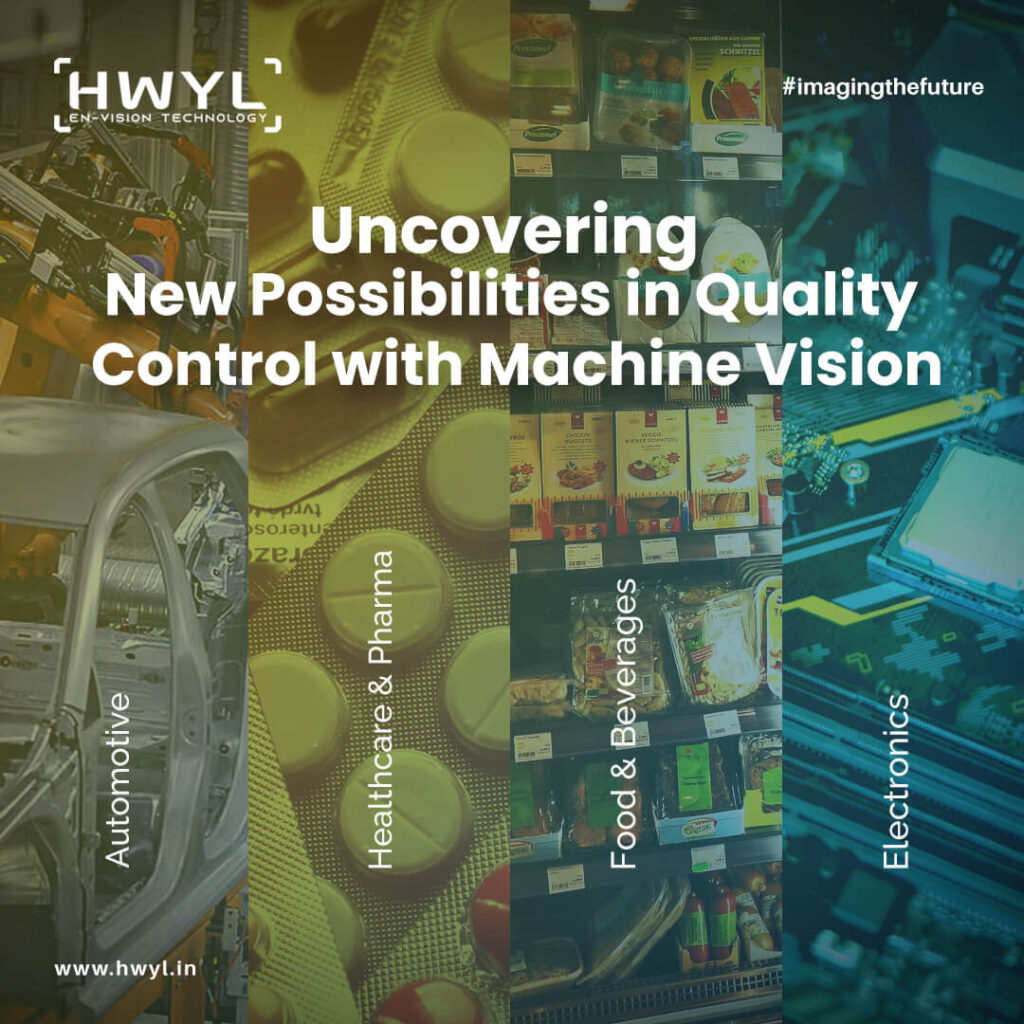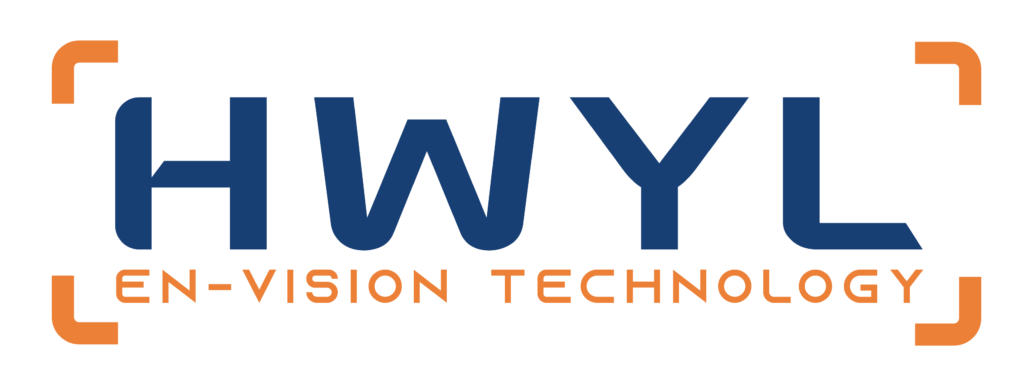
The Changing Face of Quality Control in India Powered by Machine Vision
In today’s highly competitive, fast-paced and customer-centric world, ensuring superior quality standards is a prerequisite for industries across the spectrum. The pressure to stay ahead of the market and attain customer delight is driving companies to optimise operations, lower costs and increase efficiencies like never before. This has led to a paradigm shift in quality control in India. The Government of India is introducing compulsory quality standards that are more stringent yet practical across retail, FMCG, manufacturing and more. This will help the country withstand fierce competition, scale production and become more competitive. At the forefront of this revolutionary change is machine vision, which enables inspection automation for consistent and accurate results.
What is Quality Control?
Quality control is a comprehensive approach followed across the entire production or delivery process to ensure that specific quality standards and specifications are met. It involves:
- Meticulously checking the products delivered for defects or inconsistencies
- Monitoring the production processes to ensure consistency and adherence to established procedures
- Adopting corrective actions in the event of defects by reworking the production process, fine-tuning the product or identifying the root cause of the problem to fix it
- Conformance to quality standards set by the companies, regulatory bodies, or industry associations based on safety standards and customer expectations
- Data analysis to identify trends in product quality and make informed decisions to identify areas for improvement

Emerging Trends in Quality Control by Industry and the Role of Machine Vision
Quality control is undergoing significant changes across industries with the rising demand for accuracy, consistency and efficiency in processes. Vision inspection or machine vision along with other industry 4.0 technologies, is playing a vital role in this transformation. Let us dive into the impact of machine vision across the automotive, healthcare and pharmaceuticals, food and beverage, and electronics industries.
Quality Control in Automotive
Quality control is undergoing significant changes in the automotive industry with the advent of electric and autonomous vehicles, stricter safety and environmental regulations, and connected manufacturing processes powered by AI, Machine Learning, AR, and VR technologies. Machine vision is, in turn, helping the industry embrace change and achieve breakthroughs across the entire product delivery life cycle.
Autonomous Vehicles
Sensor Calibration and Integration Checks: Vision-based systems help in checking the alignment, integration and working of the various sensors used in autonomous vehicles. This helps the LiDAR, radar and ultrasonic sensors yield accurate data for navigation and decision-making.
Object Detection and Collision Avoidance Testing: Machine vision algorithms can help the vehicle study environmental conditions and analyse objects in its surroundings to avoid collisions. Quality control includes validating the vehicle’s capability to recognize and react to such conditions in real time. The data captured is used to train the AI algorithms used in self-driving vehicles.
Electric Vehicles
Lithium-ion Battery Inspection: Quality inspection involves checking the assembly and functioning of battery cells, charging connectors, electric motors and inverters, ensuring the optimal placement of modules within the battery pack, and identifying irregularities.
Software Validation and Human-Machine Interface Monitoring: Machine vision helps in ensuring the Battery Management Systems (BMS) used in the vehicles are precisely programmed to handle the battery’s performance. It also helps analyse the precision and working of controls, displays and other human-machine interfaces connected with the electric powertrain and charging.
Quality Control in Healthcare and Pharma
Quality control is of utmost importance in the healthcare and pharmaceutical space due to the critical nature of products and the risk of putting human lives in danger. Beyond regular packaging inspection and cosmetic defect detection, machine vision is presenting innovative ways of ensuring quality in these sectors.
Vial Inspection: Vision inspection helps in automating vial and ampoule inspection, including checking fill levels, detecting empty vials, vials with incorrect stopper positions, cracked bodies or defective seals, liquid contamination, code reading and verification, and more.
Verification of DNA Sequencing: Vision-based systems are opening up new possibilities in genetic research and testing by helping in the verification of DNA sequencing results, improving the accuracy of genomic analysis, and minimising errors.
Improved Precision of Robot-Assisted Surgeries: With machine vision cameras and sensors integrated into surgical robots, doctors can receive real-time feedback and verification on instrument positioning, facilitating adjustments and improving precision.
Ensuring Quality of 3D-Printed Medical Devices: The technology can help ensure 3D-printed medical devices meet safety standards and specifications with regard to dimensional accuracy and surface quality.
Quality Control in Food and Beverages
Quality control in the food and beverage industry is undergoing breakthroughs driven by shifting consumer preferences, stringent regulatory standards and technological advancements. Beyond analysing external parameters such as colour, size, texture, shape and more, imaging systems are helping the industry go deeper into product quality by analysing aspects invisible to the human eye.
Ingredient Analysis: Machine vision now helps manufacturers perform an in-depth analysis of the presence of ingredients and their quantity in processed foods, helping them adhere to regulatory standards and specifications.
Allergen and Foreign Object Detection: Advanced vision inspection systems can identify allergen residues present in food and beverage processing equipment, reducing the risk of contamination and dangerous allergic reactions. Contaminants such as plastic, metal, insects and more can also be segregated and removed, reducing health hazards.
pH and Temperature Monitoring: Machine vision sensors also ensure the pH and temperature are maintained within the acceptable ranges in food and beverage production and raise alarms in case of deviations.
Microbial Contamination Detection: Microbial growth, pathogens and biofilm formation in the interiors of fruits can be detected early on using machine vision systems, ensuring food safety.
Quality Control in Electronics
Components used in the electronics industry are becoming smaller and more sophisticated, with zero tolerance for faults. Imaging is impacting quality control in the electronics industry in revolutionary ways to enable precise, quick and more efficient inspections.
Verification of seals and encapsulation materials: Exposure of seals and encapsulation materials used in electronic components to dust and moisture can result in corrosion, electrical shorts and operational failures. Waterproof leak testing of these components to IP67 specifications, facilitated by machine vision, checks for moisture ingress and ensures the durability of electronic components.
Die Inspection: Vision inspection systems can assist in checking semiconductor dies for deviations from design specifications, including cracks, defects and more, promoting the quality of integrated circuits.
BGA (Ball Grid Array) Verification: Ball Grid Arrays (BGAs) can be checked for warpage, solder ball defects and other irregularities, thereby enhancing the reliability of integrated circuits.
3D Inspection: Intricate defects such as height variations and surface irregularities that may be missed with 2D imaging can be identified with accuracy using visual systems with 3D imaging capabilities.
As we have seen already, machine vision is emerging as a transformative force across industries, helping them innovate while ensuring customer satisfaction. We can expect quality control to reach new heights in the years to come, driving diverse sectors towards reliability, efficiency and excellence.
About HWYL
HWYL is a trusted, one-stop provider for machine vision solutions in India. Our spectrum of solutions includes standard and custom machine vision cameras, a full spectrum of industrial lenses, and standard and custom LED lighting systems. Our deep technology understanding, strategic partnerships with leading product OEMs, and value-added support have made us one of the leading names in the vision inspection space in the country.
